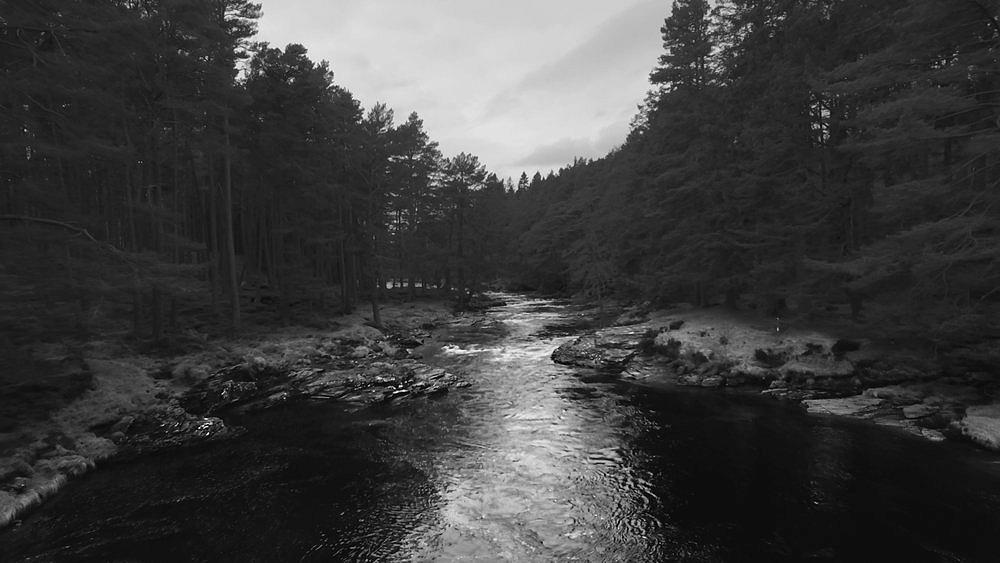
Upstream
In lockdown, Aotearoa is confined. Yet, in lockdown, any of us can travel.
Not physically. Yet through books and movies, each of us can daydream our way into other worlds.
Released during lockdown, Upstream is the creative work of English nature-writer Robert Macfarlane (The Old Ways, Landmarks and The Lost Words) and filmmaker Rob Petit. Available online (www.upstreamthefilm.com/), the movie offers those confined an imaginative and beautiful escape. Filmed entirely from the air, the viewer floats like a bird. For 27 minutes, one is free to explore the River Dee in Scotland, from sea to mountain source.
Upstream was filmed over three years and six challenging expeditions. The making of the film includes experiences of disorientating blizzards, expedition-ending injuries and winds that made walking impossible. The challenges of making the film endorse the reputation of the Cairngorm Mountains of Scotland as Britain’s Arctic.Upstream has no human characters. There are no signs of people: neither bridge nor pylon, road nor wayside rubbish. Instead, there is only river and rock. Water is a continuous, yet everchanging thread, as the River Dee meanders over pebbles and rushes over rock. The black of Aberdonian granite provides a stunning visual texture, a dramatic backdrop for a morning sun rising over windblown winter snow. Watching Upstream invites a reversal in how we imagine our rivers. We all know that sticks dropped from bridges flow downstream. Seldom do we consider sources and beginning. Such is the gift of Upstream. Downloaded amid lockdown, it becomes a way of lifting our eyes to the hills (Psalm 121), a reminder of God’s good creation.Upstream’s dream-like meander is enlivened by Macfarlane’s spoken word poetry and accompanied by a stunning musical score by Oscar-nominated composer Hauschka. The sparse words, voiced in English and Gaelic by Oscar-nominated singer Julie Fowlis and the poet Niall Gòrdan, suggest a nature spirituality hewn from river and rock.The spine of this spirituality is an introductory quote from Scottish poet Nan Shepherd, “One cannot know the rivers till one has seen them at their sources.” For Shepherd, moving upstream toward mountains invites a primal journey, in which one is “awakened in oneself.” As humans tramp the wilderness, they enter, according to Upstream, “the place where their spirit cracks.” What is curious is how in this spirituality, the human maintains a role as a central actor.Christian theology offers a different sensitivity. It is not the elements but the relationships which define identity. Over water, the Spirit hovers in creative action (Genesis 1:2). Water is separated (1:6), then gathered (1:9), so that life might flourish (1:20). Flourishing finds shape in Jesus, transforming water to wine in affirmation of wedding feasts and village festivities (John 2:1-11). These divine acts of creating, sustaining and redeeming awakened humans into relationships that respect and nurture the good gifts of creation. These relationships of gift and grace find expression in the psalms of creation. The poetry of Psalms 8, 19, or 121 celebrate the beauty and abundance of nature and locate humans in relationships of gift and grace. Such are the responsibilities of all who dare to imagine travelling upstream.Rev Dr Steve Taylor is author of “First Expressions” (2019) and writes widely in theology and popular culture, including regularly at www.emergentkiwi.org.nz.
